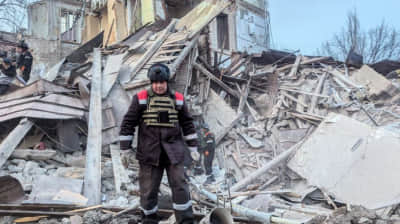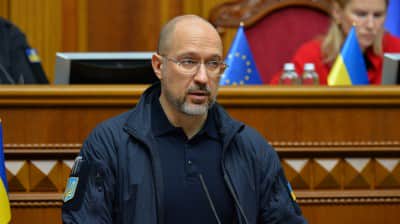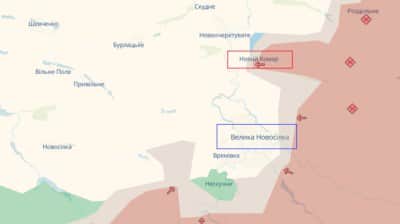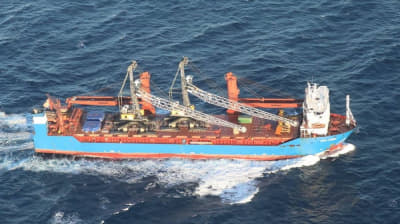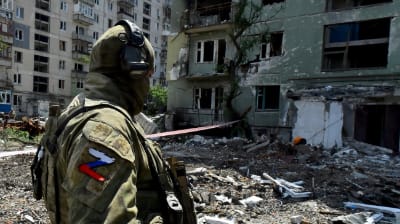Russian sappers who planted mines in Kharkiv Oblast identified by Ukrainian journalists

Journalists from Radio Liberty's Skhemy (Schemes) project have identified a number of Russian combat engineers and their commanders who planted mines in part of Kharkiv Oblast's territory.
Source: Skhemy
Details: The Russian military left a flash drive in one of the deployment sites in Kharkiv Oblast, enabling journalists to identify the servicemen.
In particular, combat engineers from the 69th Separate Marine Engineering Regiment, as well as from the 295th and 340th Separate Engineer Battalions, 254th and 488th Motorised Rifle Regiments, were involved in laying the mines.
The command of the 11th Army Corps of the Baltic Fleet proposed that some of them be nominated for state awards for "outstanding achievements".
This specifically concerns 28-year-old Nikita Laboskin, 24-year-old Sergeant Alexander Nyashin from Tyumen Oblast and 28-year-old Andrey Nazarov from Kaliningrad.
Skhemy found out that all of the military personnel who were nominated to be decorated and who had laid mines in the city of Balakliia and its surroundings in Kharkiv Oblast were led by 33-year-old Captain Aleksandr Kuznetsov from Tyumen Oblast in the Russian Federation. He is the commander of an engineering company of the 69th Regiment.
It was also proposed that he be awarded the Order of Courage for having set up "dozens of minefields and barriers" near Balakliia, and for the fact that Kuznetsov had "personally participated in the training and education of specialists".
Quote: "In total, Skhemy identified at least 13 decorated Russian combat engineers from the 69th Separate Marine Engineering Regiment, which densely mined the territory of Balakliia and its surroundings.
The Ministry of Defence of Ukraine told journalists that 33 incidents involving civilians "related to explosive devices" had been recorded between the liberation of Balakliia hromada (in September 2022 – ed.) and December 2023 [a hromada is an administrative unit designating a town, village or several villages and their adjacent territories – ed.]. A total of 7 people had been killed as a result.
Separately, journalists found documents that were also left at the positions by the Russian military. These are invoices for mines that engineering troops received from ammunition supply stores in the field to mine their targets. According to the invoices, the mines imported to Ukraine include types of anti-personnel mines that have been banned, PMN-2s in particular."
Support UP or become our patron!
